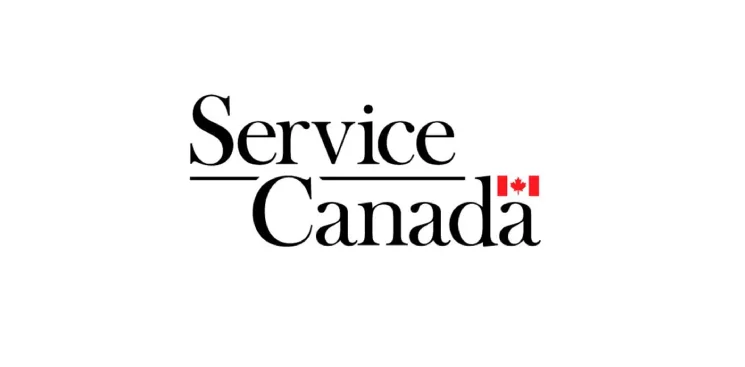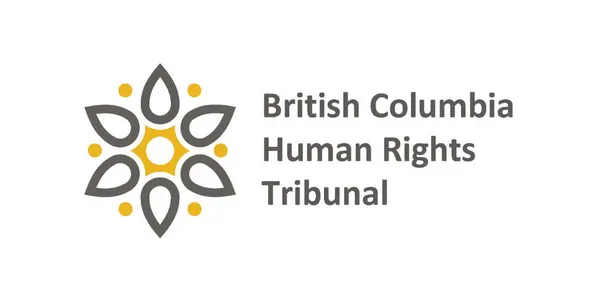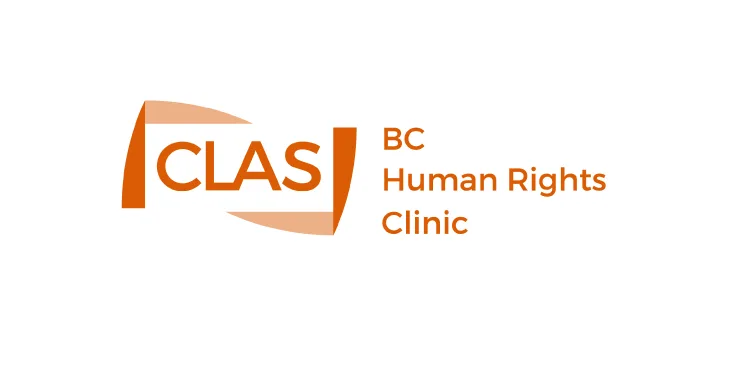
Are workers entitled to take time off work to have a baby?
Under the main law protecting workers in BC, new parents are entitled to take time off work when they have a baby or adopt a child. Two kinds of leave are available: maternity leave for workers who give birth, and parental leave for any parent. Learn your rights around maternity and parental leave.
What you should know
In general terms, two factors affect your rights to take time off work to have a baby or adopt a child:
whether you’re covered by the main law protecting workers in BC, the Employment Standards Act
your employment contract
Let’s take each in turn.
Employment standards law
First, BC’s Employment Standards Act sets out minimum standards for working conditions, including leaves from work (we explain these entitlements shortly). Most workers in BC are covered by this law. But not everyone is. For example, independent contractors aren’t covered. Nor are people working for an employer regulated by the federal government, or working in certain licensed professions. To learn if this law applies to you, see our information on who’s covered by BC’s employment standards law.
Your employment contract
Second, your employment contract may set out how much leave you’re entitled to and on what terms. Every worker has an employment contract. The terms of your contract may be in a written agreement. Or they may be expressed in other ways, such as in:
letters or emails you received from your employer before you started working
anything you’re asked to sign before or after you started working
an office policy manual or staff handbook
a collective agreement (if you’re a member of a union)
You can't contract out of your legal entitlements
If you’re covered by the Employment Standards Act, your employment contract can’t provide for less than what’s required under the Act. Whatever your contract says about maternity or parental leave, it can't be any less than the leave entitlements under the law (explained below).
“When I found out I was pregnant, I was worried about what it meant for my job. I had a lot on my plate at work and was hesitant to ask for time off. But then I was reading up on maternity leave and learned that employers are required by law to provide it. I notified my supervisor well in advance, and she assured me my job will be waiting for me when I return.”
– Shelby, Victoria, BC

Under the Employment Standards Act (for those who are covered by the Act), pregnant workers are entitled to 17 weeks off work, without pay, to have their baby. This is called maternity leave. It’s also referred to as pregnancy leave.
Some employers offer paid maternity leave. If yours does, this would be spelled out in your employment contract. More typically, workers receive employment insurance benefits during the time they are off work. Below, we explain the EI benefits that are available.
If you gave birth to a baby, you also have the right to take parental leave, as described shortly. However, you must begin it immediately after your maternity leave ends, unless your employer agrees otherwise.
Timing of maternity leave
You can begin your maternity leave up to 13 weeks before you expect to have your baby. If you begin your leave after you have your baby, it must end within 17 weeks of when your baby was born.
The weeks must be taken consecutively.
If a pregnancy ends
If a pregnancy ends, you can take up to six weeks of leave starting on the date the pregnancy ends. You may have to give your employer a doctor’s note saying when the pregnancy ended.
Extension of leave
If you’re unable to return to work for reasons related to the birth or the pregnancy ending, the leave can be extended for up to six additional weeks.
You may need a doctor's note
If you want to return to work earlier than six weeks after giving birth to your child, your employer may require a note from your doctor saying you’re ready to work.
Under the Employment Standards Act (for those who are covered by the Act), parents are entitled to unpaid leave from work when their child is born or adopted. This is called parental leave. Parents can take their leave together, share leave, or take it at separate times.
If a pregnant worker has taken maternity leave, the worker is entitled to up to an additional 61 consecutive weeks of parental leave. The parental leave must be taken immediately after the maternity leave, unless the employer agrees otherwise.
Parents who have not taken maternity leave are entitled to up to 62 consecutive weeks of parental leave. The leave must begin within 78 weeks of the birth of the child.
Adoptive parents are entitled to up to 62 consecutive weeks of parental leave. The leave must begin within 78 weeks of the child being placed with the parents.
If your child has a condition requiring special care, you may be entitled to an additional five consecutive weeks of unpaid leave.
Let your employer know in advance
You must tell your employer — in writing — at least four weeks before you expect to go on maternity leave or parental leave. If required by your employer, you must give them a doctor’s note or other evidence of your entitlement to leave.
There is no requirement under the law that an employer pay a worker while they’re on maternity or parental leave. Some employers choose to offer paid maternity or parental leave. If your employer does, this would be spelled out in your employment contract.
You may be eligible for employment insurance benefits
When you’re on maternity or parental leave, you may be entitled to collect employment insurance benefits.
Maternity benefits are available to someone who is away from work due to being pregnant or giving birth. The benefits are paid at up to 55% of your earnings (capped at a maximum amount per week) for up to 15 weeks.
Parental benefits are available to the parents of a newborn or a newly adopted child. There are two options:
A standard benefit rate, which pays 55% of your earnings (capped at a maximum amount per week) for up to 40 weeks.
An extended rate, which pays 33% of your earnings (capped at a maximum amount per week) for up to 69 weeks.
Parental benefits can be shared between parents. Maternity benefits can’t. Someone receiving maternity benefits may also be entitled to parental benefits.
See the federal government’s website for details and how to apply for benefits.
Your entitlement to regular benefits
If your employer has been paying your medical or dental benefits, then they must continue to pay them while you’re on leave. If they’ve been paying a portion and you’ve been paying the remainder, you need to provide them with payments or post-dated cheques to cover your portion of the benefits.
Your years of service continue while you’re away on maternity or parental leave. As a result, you’re still entitled to time off for vacation. And while you’re on maternity or parental leave, you still earn your vacation the same as if you were working. But you may receive little or no vacation pay, as vacation pay is calculated based on a percentage of the total wages paid to you by your employer.
Under human rights laws in BC, your employer can’t treat you differently because of your pregnancy. If they do, it’s called discrimination.
For example, say your employer tells you they’re considering giving you a promotion. But then they find out you’re planning to have a baby, and decide to give the promotion to someone else. They tell you they doubt you’d be able to handle the extra work as a new parent. That’s discrimination.
See our guidance on if you’re discriminated against at work.
An employer can't ask you about pregnancy during a job interview
During the hiring process, an employer isn’t allowed to ask you if you’re pregnant, plan to become pregnant, or have a family. If you’re asked any of these questions during an interview, you can decline to answer.
Under the Employment Standards Act, an employer isn’t allowed to fire you because you’re pregnant or because you took maternity or parental leave. They’re also prohibited from changing a condition of your job without your written consent, just because you’re pregnant or took leave.
(To confirm whether employment standards law applies to you, see our information on who’s covered.)
During your pregnancy, you may have special needs at work. For example, you may require a chair with more support if your job involves a lot of sitting. Your employer has a duty to adjust to your needs as well as they can. This is called the duty to accommodate.
What accommodation looks like will vary depending on what your specific needs are. Some examples of accommodation during your pregnancy include:
providing more flexible working hours to allow you to attend medical appointments
changing your job duties so you don’t have to do any heavy lifting
buying you a more ergonomic desk for your workspace
Note that your employer’s duty to accommodate you isn’t limitless. It extends only to the point where it causes them undue hardship.
For more, see our guidance on an employer’s duty to accommodate.
One of the purposes of maternity and parental leave is to give you peace of mind knowing your job is secure during your absence. Under the Employment Standards Act (see if you’re covered by the Act), when you return from maternity or parental leave your employer must ensure you return to the same position you held before your leave (or one that is very similar).
One exception to this rule is if your employer suspends or discontinues their operations before you return from leave. In this case, you’d be entitled to return to your old position once operations resume.
Work out problems
You must tell your employer — in writing — at least four weeks before you expect to go on maternity leave or parental leave. A pregnant worker who expects to take both maternity and parental leave must give separate notices for each, but can give them at the same time.
Your employer may also require a note from your doctor stating your expected birth date.
Your employer can't tell you when to begin your leave
Your employer can’t tell you when to begin your maternity or parental leave. As long as your health permits, you can continue to work until your employer can’t accommodate your needs.
If you give your employer enough notice, they should grant your request for maternity leave or parental leave. If they refuse your request, try raising the issue with them directly. Tell them you understand your rights and that you think they haven’t followed the rules in denying your request.
Tips for having a conversation with your employer
Approaching your boss can be stressful. We offer tips to help you talk with your employer.
If discussing the issue with your employer directly doesn’t work, consider putting your concerns in writing. Explain your perspective and your interest in working together to find a solution. For example, you could say something like:
“Under the BC Employment Standards Act, I’m entitled to 17 weeks of unpaid maternity leave. [Modify to fit your situation.] I provided you with the required notice, but when I asked to go on maternity leave you denied my request. I’d like to explore solutions to this issue with you as soon as possible.”
We provide tips for writing a letter to your employer.
Keep a copy of the letter. Having a written record will be useful if you need to take additional steps.
If you aren’t able to resolve things directly with your employer, you can make a formal complaint. Workers covered by the Employment Standards Act (see who’s covered) can make a complaint to the Employment Standards Branch. This government office administers the Act and helps workers and employers resolve problems. For what’s involved, see our guidance on making an employment standards complaint.
You may also be able to file a human rights complaint. Under the BC Human Rights Code, an employer must not discriminate against a person regarding employment or any term or condition of employment because they are pregnant or have given birth. Visit the BC Human Rights Tribunal’s website for guidance on how to file a human rights complaint.
If you're a member of a union
If you’re a member of a union, check your collective agreement. It will typically include provisions for leave to have a baby or adopt a child. If it does, you may be able to file a grievance against your employer.
Common questions
Pregnant workers can take both maternity and parental leave. If you take maternity leave, you’re entitled to up to an additional 61 consecutive weeks of parental leave. You must begin parental leave immediately after the end of your maternity leave, unless your employer agrees otherwise.
For workers covered by the Employment Standards Act (see who’s covered), the Act says that your employer must ensure you have the same job (or a comparable one) when you return from a leave. However, this protection isn’t absolute. In other words, the workplace isn’t “frozen” while you’re on leave. Employers have the flexibility to make business-related decisions while you’re absent. Sometimes, these decisions will lead to workers losing their jobs.
However, it’s another story if you were let go because you were on maternity or parental leave. This is called discrimination, and it’s a violation of the provincial human rights law.
Who can help

Employment Standards Branch
The BC government office that deals with complaints against employers.

Service Canada
Can help with questions or concerns about employment insurance benefits.

BC Human Rights Tribunal
Receives and resolves discrimination complaints under BC law.

BC Human Rights Clinic
Provides free assistance and representation to those who qualify for help with a discrimination complaint under BC law.

Access Pro Bono's Free Legal Advice
Volunteer lawyers provide 30 minutes of free legal advice to people with low or modest income.

Access Pro Bono’s Everyone Legal Clinic
Clinicians provide affordable fixed-fee services on a range of everyday legal problems.

Lawyer Referral Service
Helps you connect with a lawyer for a complimentary 15-minute consult to see if you want to hire them.

BC Legal Directory
Search for a lawyer by community or legal issue. From the Canadian Bar Association, BC Branch.

